Waste or Resource? The Debate on Industrial Oil Reuse and Recycling
In today’s highly industrialized world, the use of oil as a lubricant, coolant and fuel is essential to many operations. However, the consumption of oil results in a large amount of waste, especially industrial oil waste. This byproduct is often considered waste due to its environmental risks and disposal challenges, but it still has the potential to be a reusable resource. With the increasing awareness of environmental sustainability, people are beginning to explore opportunities in industrial oil recycling.
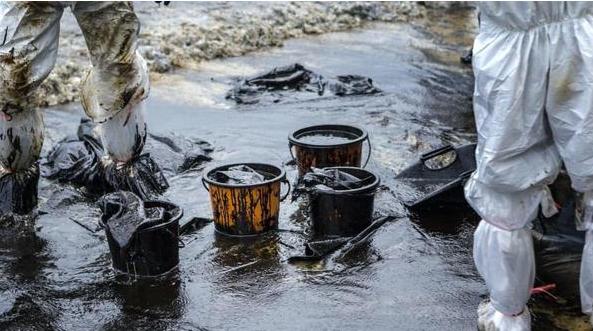
What is the Scale of Industrial Oil Waste?
The scale of industrial oil waste is substantial and continues to grow as industries worldwide expand. Industrial oil waste includes used lubricants, hydraulic fluids, and oils that become contaminated through industrial processes. Each year, millions of gallons of oil are discarded as waste, with estimates suggesting over a billion gallons of used oil are generated annually across the globe. In the United States alone, approximately 1.3 billion gallons of used oil are produced each year, highlighting the vast volume of this byproduct.
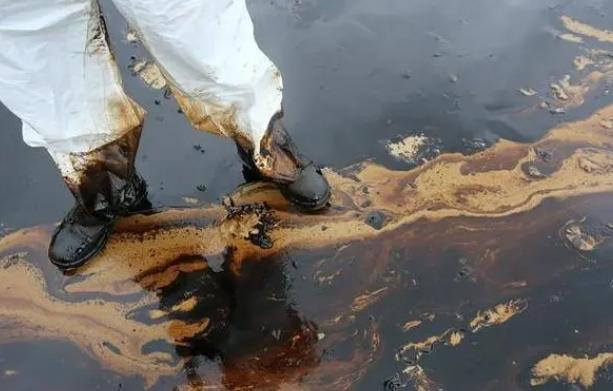
Improper disposal of industrial oil waste is a significant environmental concern. When not managed correctly, it can contaminate soil, groundwater, and water bodies, leading to severe ecological damage. Furthermore, the mismanagement of used oil results in lost opportunities to recycle and reuse valuable resources, exacerbating the demand for new oil extraction and contributing to environmental degradation.
Despite its potential for reuse, industrial oil waste is often treated as a hazardous byproduct, leading to challenges in its proper disposal and recycling. This highlights the need for better management practices to reduce waste, reclaim valuable oil, and minimize environmental impact.
Debate for Industrial Oil Recycling as a Resource
One of the core arguments in favor of industrial oil recycling is that it can provide significant environmental and economic benefits.
Industrial oils contain valuable base oils and additives that can be reclaimed, purified, and reused in new formulations. Recycling processes, such as re-refining and regenerating, help to remove contaminants from used oils, making them suitable for reuse in machinery or as raw materials for new products.
In this context, industrial oil is seen as a resource rather than waste. Advocates for recycling emphasize that the environmental costs of producing new oils can be mitigated by reusing oils, reducing the demand for virgin crude oil, and conserving natural resources. Moreover, recycling helps reduce landfill waste and the harmful effects of oil spills on ecosystems.
- Economically, re-refining used oil provides a cheaper alternative to sourcing new oils. It also supports job creation in the recycling and waste management industries. Additionally, the reduced need for raw materials and energy consumption associated with the production of new oil offers long-term cost savings. Recycling also reduces the amount of harmful substances released into the environment, which would otherwise require expensive remediation efforts.
- On the other hand, some argue that industrial oil waste, due to its hazardous nature, requires strict handling, regulation, and treatment before it can be considered a legitimate resource. There is concern about the potential contamination risks and the complexities involved in recycling certain oils. For instance, some used oils may contain toxic chemicals or heavy metals that make them unsuitable for reuse or create more complex waste streams when processed.
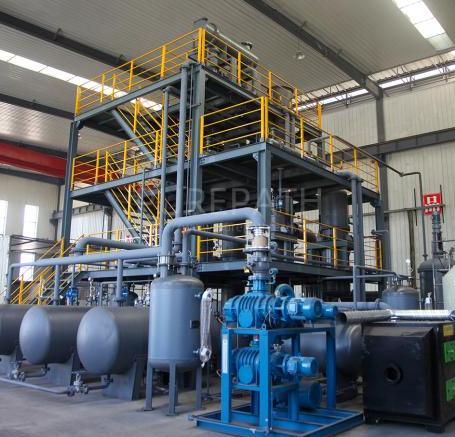
The Benefits of Industrial Oil Reuse and Recycling
Recycling and reusing industrial oil offers significant advantages, both for the environment and the economy.
Environmental Benefits
- Waste Reduction: Recycling industrial oils helps divert millions of tons of used oil from landfills, reducing the risk of oil contamination in the environment. This process prevents soil and water pollution, safeguarding vital ecosystems from the harmful effects of improper oil disposal.
- Energy Efficiency: Re-refining used oils is significantly more energy-efficient than producing new oil from raw crude. Research indicates that recycling used oil can save up to 70% of the energy required for traditional oil refining, making it a more sustainable choice for industries.
- Conservation of Natural Resources: Reusing industrial oils lowers the demand for crude oil, a non-renewable resource. This reduces the environmental impact of oil extraction and helps preserve essential natural resources for future generations.
Economic Benefits
- Cost Savings: Recycled industrial oil is generally more affordable than new oil, offering businesses a cost-effective solution for industries such as manufacturing and automotive. This allows companies to lower operating costs while maintaining high performance standards.
- Job Creation and Economic Growth: The recycling industry generates employment opportunities across various sectors, including waste management, oil collection, and processing. As demand for recycled oil increases, it fosters the growth of a green economy, contributing to economic development at both local and global levels.
- Long-Term Financial Benefits: Widespread adoption of industrial oil recycling can result in continuous cost savings for companies. By reducing reliance on oil disposal, new oil purchases, and compliance with regulations, businesses can significantly lower their overall oil management expenses.
Can Industrial Oil Be Both Waste and Resource?
The question of whether industrial oil can be considered both waste and a resource hinges on several key factors, including its level of contamination, the recycling methods employed, and the economic and environmental context. While many argue that used industrial oil has the potential to be repurposed as a valuable resource, others highlight the challenges involved in making it suitable for reuse. Here are some key considerations in the ongoing debate:
Factors That Support Industrial Oil as a Resource
- Advancements in Recycling Technology: Innovations in oil recycling technologies, such as high-efficiency distillation and chemical treatments, have made it more practical to clean and reuse industrial oils. These improvements have enhanced the effectiveness of the recycling process, allowing oils that were once discarded to be repurposed.
- Recovery of Valuable Components: Used industrial oils often contain valuable base oils and additives that can be purified and reused in new applications. Recycling allows these components to be recovered, reducing the need for new raw materials.
- Energy and Resource Conservation: Recycling industrial oil helps conserve natural resources like crude oil and reduces energy consumption. Re-refining used oil requires considerably less energy compared to producing new oil, thereby lessening the environmental impact of oil production.
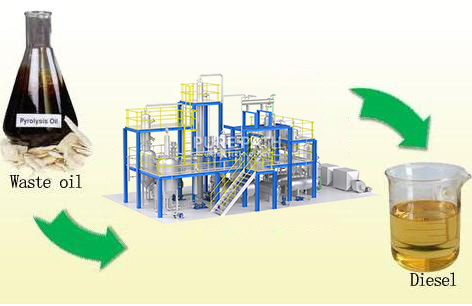
Challenges That Reinforce Industrial Oil as Waste
- Contamination Risks: Used oils often contain contaminants such as heavy metals, water, dirt, and harmful chemicals, which can complicate the recycling process. These contaminants may require complex and expensive purification methods, and in some cases, the level of contamination may be too high for effective recycling.
- Economic Feasibility: Recycling certain oils can be costly, especially when the contaminants are difficult to remove. The treatment and regeneration processes can sometimes exceed the financial benefits, particularly in regions lacking efficient recycling infrastructure.
- Regulatory and Safety Concerns: Due to the potential health and environmental hazards posed by contaminated oils, many regulatory agencies classify them as hazardous waste. This classification adds complexity to the recycling process, as strict regulations govern their handling, storage, and processing.
Industrial oil can be both waste and resource depending on the quality of the oil, the recycling technologies available, and the economic and environmental circumstances. While the potential to recycle used oils exists, overcoming contamination, economic barriers, and regulatory challenges remains a significant hurdle. The classification of industrial oil as waste or resource ultimately depends on how effectively it can be processed and reused within the existing industrial framework.
The Role of Used Oil Recycling Plants in Managing Oil Waste
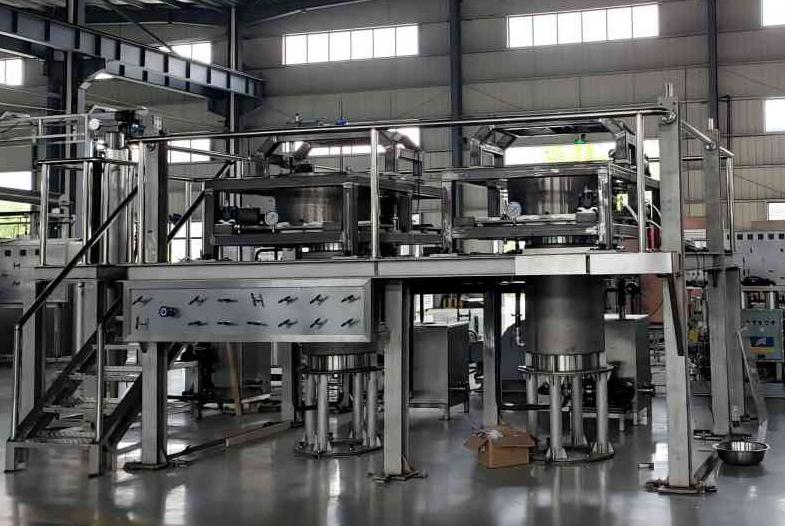
Used oil recycling plants play a critical role in turning industrial oil waste into a valuable resource, offering both environmental and economic benefits. These facilities use advanced technologies to process and regenerate used oils, reducing the need for new raw materials and minimizing environmental harm. The role of these plants can be broken down into several key functions:
- Purification of Used Oil: Recycling plants remove contaminants such as dirt, water, metal particles, and chemicals from used oils through processes like filtration, distillation, and chemical treatments. This results in purified oils that can be reused in machinery and industrial applications.
- Energy and Resource Conservation: By re-refining used oil, these plants help conserve natural resources like crude oil, while significantly reducing energy consumption compared to producing new oils. The recycling process saves up to 70% of the energy typically required for refining virgin oils.
- Environmental Protection: Recycling plants prevent millions of liters of used oil from being discarded improperly, reducing pollution, soil contamination, and waterway damage. By keeping used oil out of landfills and ecosystems, they help mitigate the environmental impact of oil waste.
- Cost-Effective Recycling: Used oil recycling plants offer industries a cost-effective alternative to purchasing new oil. The purified oil is often cheaper, supporting long-term cost savings while reducing dependency on virgin oil.
In essence, used oil recycling plants are pivotal in transforming waste into a resource, supporting a more sustainable and circular economy.







